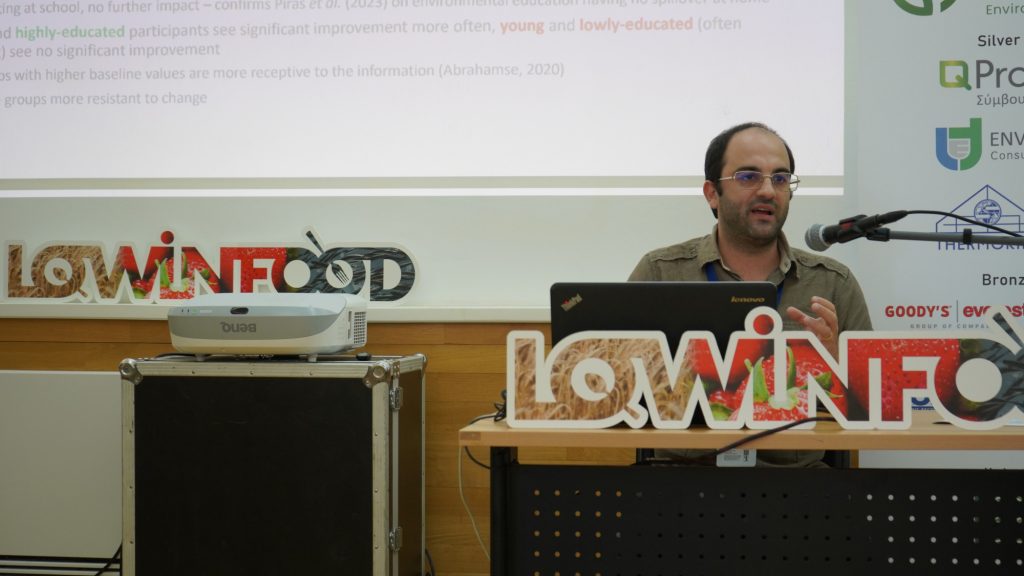
How being involved in innovations against food waste changes individuals’ awareness, attitude, and behaviours
On 25 September 2024, LOWINFOOD partner Simone Piras (The James Hutton Institute) presented at the Retaste Conference the results of a study he carried out along with his colleague Nazli Koseoglu regarding individuals’ awareness, attitude and behaviour change when they are involved in food waste prevention interventions.
This study was not linked to a specific innovation of LOWINFOOD; rather, they reached people participating in the demonstration of 12 of the LOWINFOOD innovations, involving people from eight countries and ranging from workplace employees to high-school students and household members.
The aim of the study was to test a hypothesis found in the literature declaring that approaches requiring active involvement in food-related tasks are more effective in triggering change in attitudes and behaviour compared to passive interventions based on the sole delivery of information. In this study, they investigated if being involved in the implementation of innovations against food waste increases awareness towards the problems and improves the attitude and behaviour of participants towards wasting food.
They asked participants to respond to a survey both at the beginning of their participation and after they participated in the implementation of the innovation, and they collected a total of more than 500 responses. After analysing data, they found out that household consumers experienced the most significant and positive change. They concluded that being involved in innovations reinforces the relation between intention and behaviour. Therefore, despite admitting that the sample used was small and diverse, researchers stated that “our results show that direct involvement in innovations can be an effective strategy to address food waste”.
Share on Facebook Share on Twitter Share on Pinterest